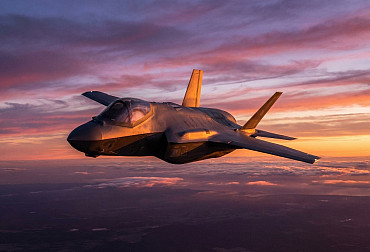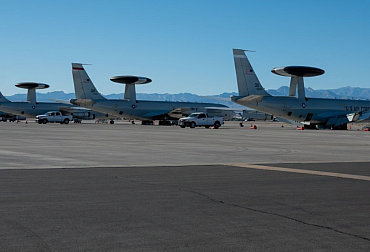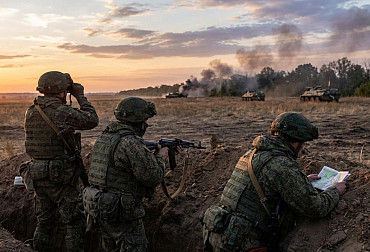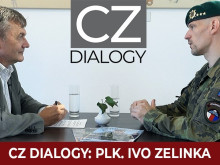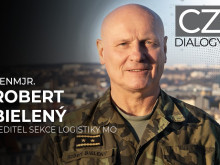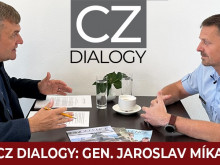Jakub Landovský: The NATO Military Council is unencumbered by political considerations
The war in Ukraine, the war in Israel and terrorism - these are the three biggest topics on the North Atlantic Alliance's agenda at the moment. Its task is not only to deter adversaries, but also to work systematically to stabilise the current deteriorating security situation. According to Ambassador and Permanent Representative of the Czech Republic to NATO Jakub Landovský, whom we invited to the next episode of our discussion programme CZ DIALOGS, it is necessary to talk to the Czech public, because they too certainly perceive on their phone screens or TV sets that the world is not quite right. In the course of the interview we focused not only on NATO activities, but also discussed possible solutions to the current security situation.
Video: Interview with Ambassador and Permanent Representative of the Czech Republic to NATO Jakub Landovský / CZ DEFENCE
The structure of NATO is divided into civilian and military parts. The civilian part is headed by the Secretary General of NATO, who represents the Alliance externally; the military part is governed by a military committee. The present day has brought many security risks that have both political and military solutions. "In human history, since ancient Rome, the question of political control of the military is absolutely crucial. In our country, for example, there has always been a head of state at the head of the army - the president of the republic and his role in managing the armed forces or approving orders." According to Jakub Landovský, war is such a serious matter that its control, the control of escalation, cannot be left to the soldiers alone. At the same time, it is such a complex matter that it is impossible to leave direct management to politicians who are amateurs in the field and are fulfilling their political mandate. "Military professionals and politicians who have a mandate from the public must form an excellent match. In it, the political party always has the upper hand. And it gives the basic assignment. That means, for example, that in the Alliance we defend every inch of Alliance territory from the first second of conflict. This is a rather difficult task and it is up to the soldiers to give the so-called military recommendation on how to achieve this," says the ambassador to NATO, adding that it is an interplay where on the one hand there is a political decision and control and on the other hand there is a military recommendation that is respected because it is a recommendation from military professionals. And that is how it works in the Alliance as well. "The chairman of the military committee, or the supreme allied commander in Europe (SACEUR), attends the North Atlantic Council meeting, where at the level of the ministers of states, at my level - the political assignment is created and the military professionals give a military recommendation on it," Landovsky adds.
We were interested in whether the political representations of the individual Alliance countries are fulfilling their role regardless of the current political situation in their countries. Slovakia is currently such an example. According to Jakub Landovský, the current post-election situation in our eastern neighbours does not affect the operation or deployment of NATO. In NATO, the issue of defence security is dealt with professionally, thanks to the politically unencumbered military council. "We do not care who defines a terrorist organisation and in what form. We simply know what is happening in those regions. And for example, the military will recommend how to respond to some primitive rockets that are hitting, say, Israel, but have also hit Turkey. The military council is unencumbered by political considerations. The second thing is that defense and security is so basic that changing the election usually doesn't ultimately change the behavior of an alliance member. It is one thing to have pre-election rhetoric, it is another to then secure the functions of the state and Slovakia has already declared that the basic determinants of their western anchorage in NATO, the EU will remain intact and everyone should realise that we do not stand alone in this turbulent world. For example, Israel may have the support of neighbouring countries, but in the end the conflict and its leadership will be more up to it and we should appreciate that it works together," says the ambassador to NATO, who adds that even within his mandate there has been no change of course for the Czech Republic because of the elections. "Basically, since Vrbětice, when the Russians killed our first citizens, the assignment has been absolutely stable and trustworthy," says Jakub Landovský.
As we mentioned in the introduction, the Alliance is also dealing with terrorism, and this danger is growing in the context of the conflict in Israel. There is now a real threat of terrorist acts in some European countries where there is a strong pro-Palestinian community. 'On the one hand you have a state, a condensed, very fundamental existential threat of war between states, and on the other hand you have terrorism, usually led by an ideology, which erupts out of nowhere by primitive means, capable of causing disruption, enormous suffering, absolute atrocities, and actually out of the blue. The new alliance plans already have a so-called unitary structure, its task is collective defence. But within collective defence, it can also serve the terrorist threat. And it's great news that the debate among southerners, who have often supported the issue of the stability of African countries and the issue of uncontrolled migration, terrorism, say radical Islamism, etc., do not have to argue about resources with the eastern wing states, which of course rightfully feel the Russian threat as primary," Landovsky says, adding that this solution has been helped by new military plans that are based on unencumbered, politically neutral military considerations.
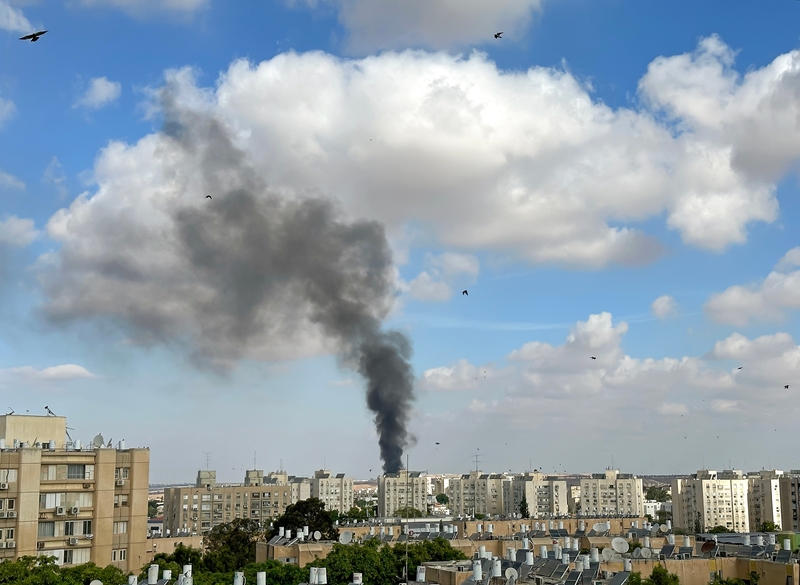
The above is also related to the issue of defence funding and the commitments that member countries have made to the Alliance. The Czech Republic has enacted 2% of GDP for defence, but Jakub Landovský confirms that the amount of this expenditure is more of a "floor than a ceiling". According to him, the amount of spending is determined by the defence planning system, which assigns all allies certain tasks that they must fulfil. If they fail to meet them, then someone else within NATO must do the job. In a situation where everything is based on mutual solidarity, this will not hold up in the long term. However laudable the reaction to this move by the Czech Government, given the previous underfunding of our defence sector, it is simply not enough. "When I joined the defence ministry, the budget was CZK 39 billion," recalls Jakub Landovský. In the matter of defence financing, other Alliance countries can be an inspiration for us. "There are countries that set the tone, and this is a standard thing. The United States, both in its assistance to Ukraine and in ensuring the security of all, as the biggest ally, sets the tone. It's still the case that sixty-five percent of the spending that allies collectively spend on defense, and that's a staggering amount, is barely one point four trillion dollars a year, so the United States has almost seventy percent of that. The EU allies have about twenty percent, and let's say European allies like Turkey, the UK, and others have ten percent. Then there's the nuance of who is not complying in the long run, countries like Canada, Belgium, Luxembourg, and who has the good will to comply and who is complying in the long run. And here you have to see that the Baltic countries have had two percent for a long time, today they are at two and a half percent. Poland is investing four percent in its defence and the interesting thing about Poland is that although they are investing in defence, their economy is going. They have quite an unprecedented growth in the region," says Jakub Landovský, who appreciates Poland's ability to take appropriate decisions that pay off because the defence industry is able to provide Polish defence and make a profit.
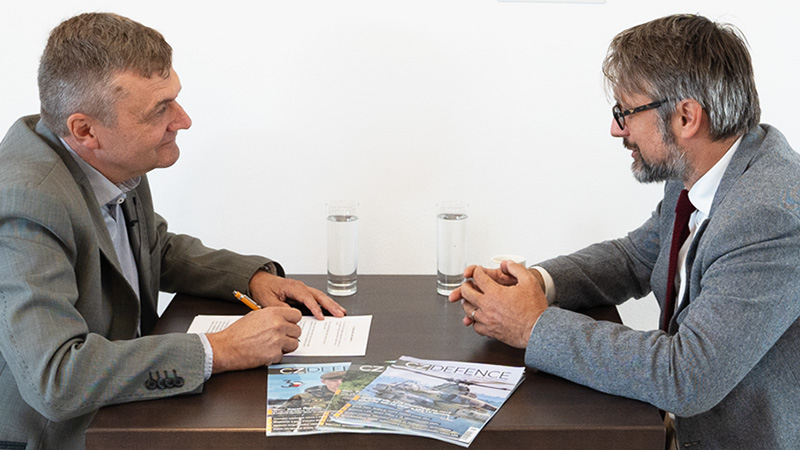
One of the important moments is also the awareness of the historical context. And this is true in the case of Poland and the Baltic countries. "They certainly know their history well, they are aware of the threats. I think that Poland's orientation towards its own defence will continue. It will remain the main axis of their efforts, because Karl Marx had it wrong. No, it's not that first the economic base and then the social superstructure. That base is simply ensuring the very basic security of society. It is only above that that some economic superstructure is built, which makes it possible to improve and maintain that basic security way of living in society," says Jakub Landovský. We asked whether Poland could be an example for the Czech Republic in this respect. According to Landovský, it is necessary to look at the whole thing through the lens of numbers. "Poland spends twenty-five billion dollars on defence every year. We are already close to the biggest allies like Italy and France. That means it's a really big regional player, it's got four or five percent economic growth, and it's currently engaged in choral-level work. The Czech Republic, if it all works out, will be giving something like seven billion dollars for defense. Our contribution to the Alliance, the standard one and still unfulfilled, is one brigade without rotation, which is actually relatively small compared to some allies. Because we are a country of ten million people," explains Jakub Landovský, who sees the adoption of the Czech Defence Strategy, which was approved by the government about a month ago, as a significant step forward. "It is a great success, it actually leaves the door open to the fact that we will set our overall ambition depending on the decision on collective defence that we will make together with our allies in the North Atlantic Alliance. And I expect that in the future that decision will fall more in the direction of increasing our ambition. It's spelled right, and there's one important thing there - it's a matter for the whole country, not just the Department of Defense. Today, these things cannot be fully separated," says Jakub Landovský, the Czech ambassador to NATO.
In the interview, we also touch on the situation in Israel, the attitude of the Czech public towards contemporary threats, global multipolarity and the rise of new world powers. We also discuss the situation in Ukraine, the Czech Republic's defence strategy and how important Turkey is as a member of the Alliance. To learn more, listen to the full interview at the top of this article.












